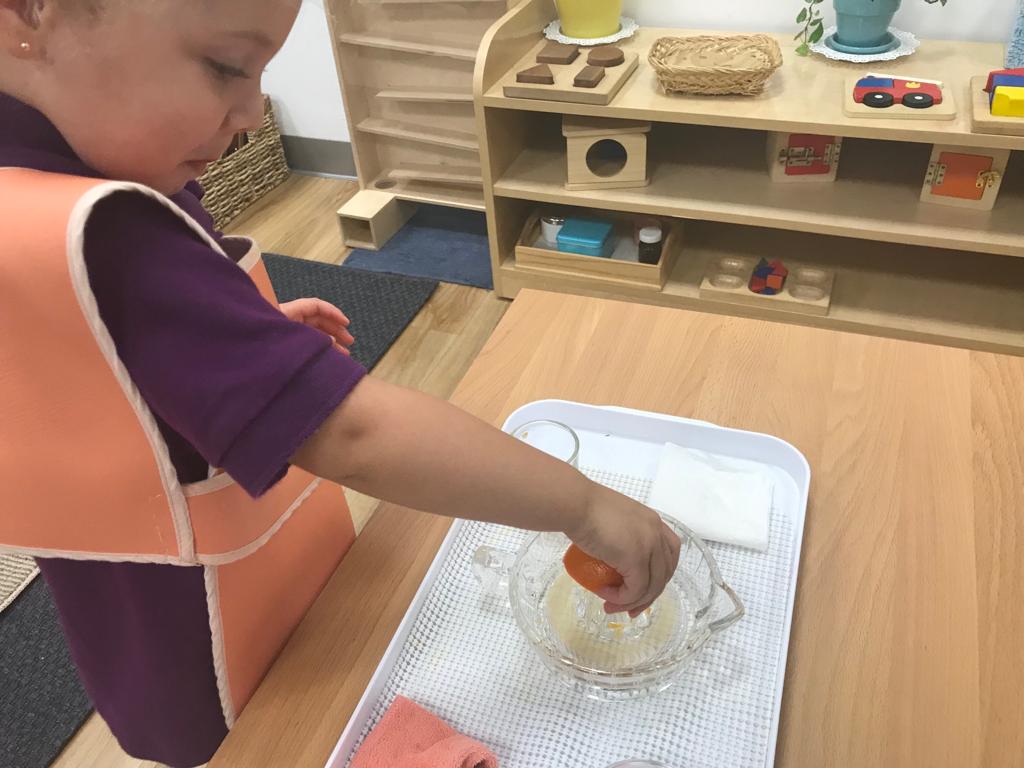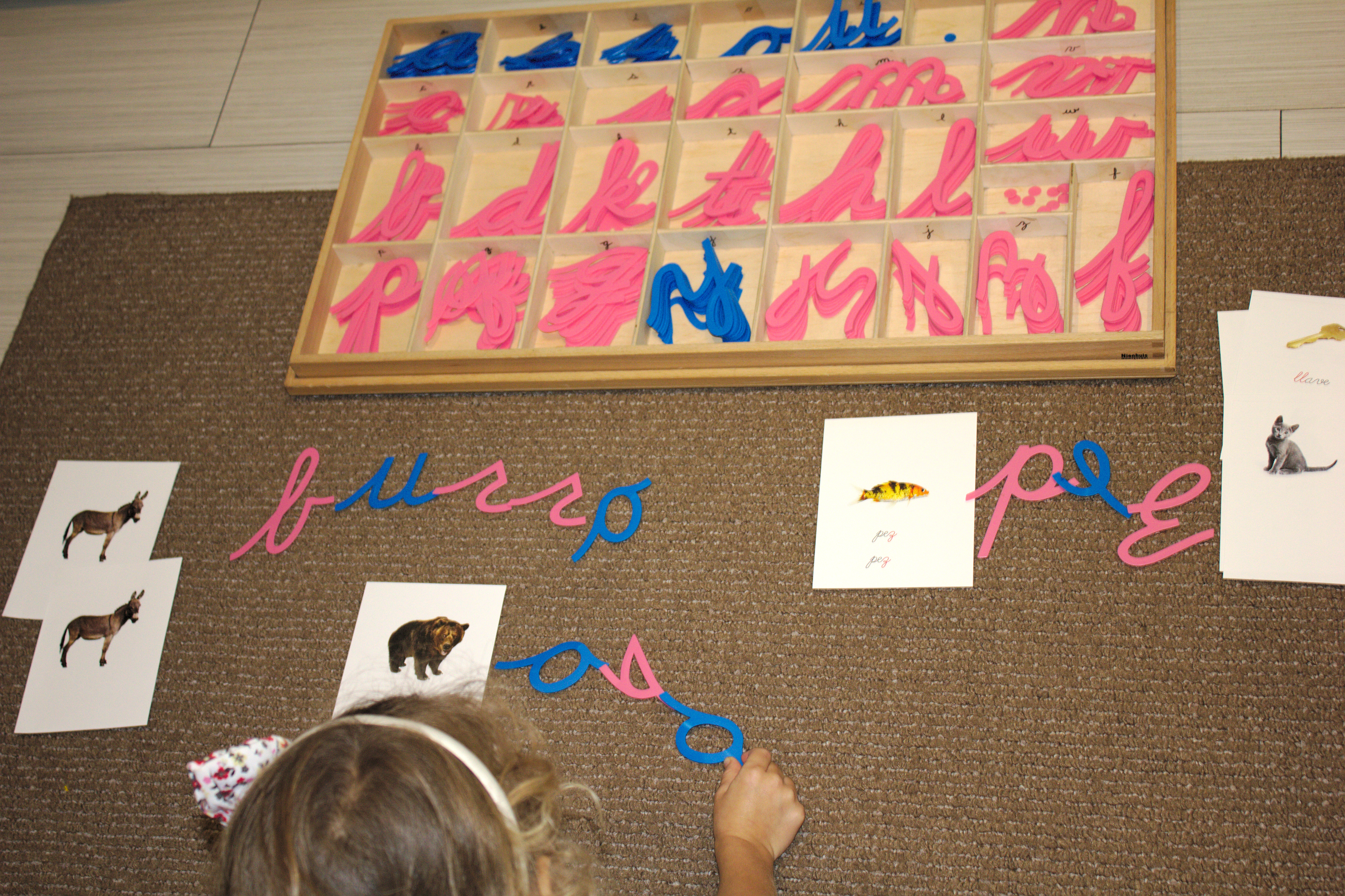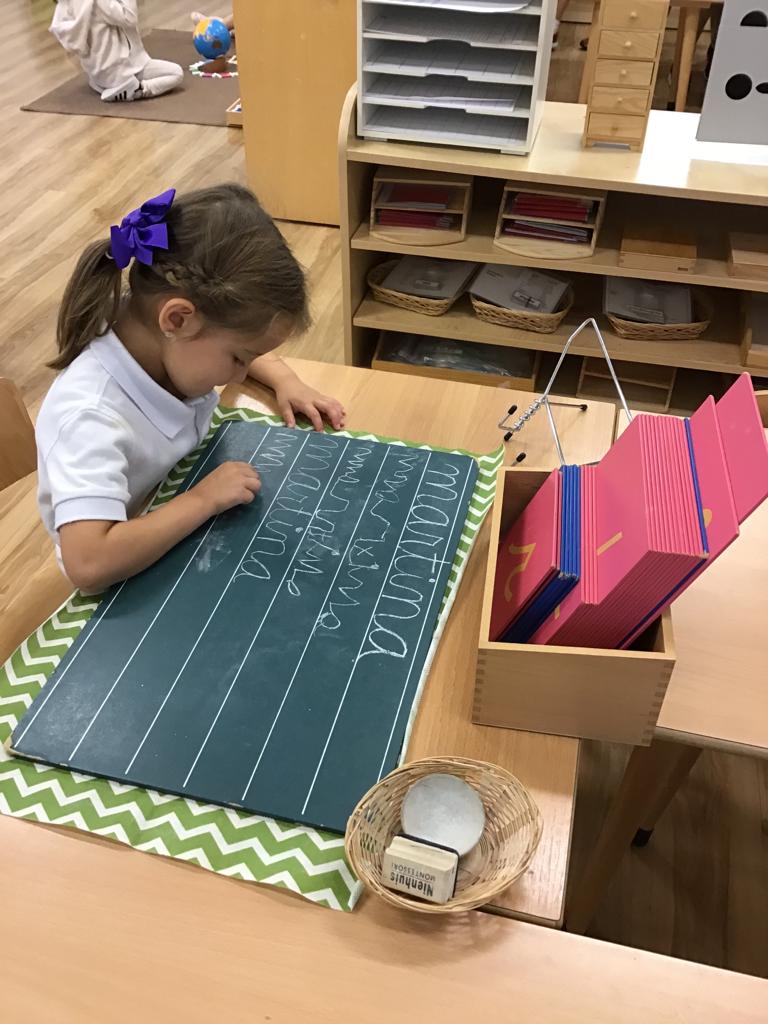Montessori Principles.
What is Montessori?
Modern science has confirmed what Dr. Maria Montessori discovered long ago: the first few years of life are critical for personality and intellectual development of any child. Montessori is a comprehensive educational theory based on the scientific and meticulous observation of children’s needs and abilities. Its aim is to cultivate and support the child’s natural desire to learn. It was developed by Maria Montessori in 1907, the first woman in Italy to become a physician. She developed the educational approach based on her studies of children’s natural learning tendencies as they unfold in specially prepared environments for multi-age groups (0-3, 3-6, 6-9, 9-1, 12-15, 15-18).
Dr. Montessori discovered that children pace their own development through a series of sensitive periods during which they become acutely aware of language, order, their own senses, movement, and society. Her method encourages these sensitive periods to "explode" into bursts of creativity, introducing the child to the basics of mathematics, language, science, and other disciplines. Now, nearly a century after Maria Montessori's first "Casa dei Bambini" ("Children's House") in Rome, Montessori education is found all over the world, spanning ages from birth to adolescence.
Montessori classrooms provide a prepared environment where children are free to respond to their natural tendency to work. The children’s innate passion for learning is encouraged by giving them opportunities to engage in spontaneous, purposeful activities with the guidance of a trained adult. Through their work, the children develop concentration and joyful self-discipline. Within a framework of order, the children progress at their own pace and rhythm, according to their individual capabilities.
The main premises of Montessori education are:
• Children are to be respected as individuals who differ from each other.
• The child possesses an unusual sensitivity and intellectual ability, unlike those of the adult, to absorb and learn from his environment, both in quality and quantity.
• The first six years of life are the most important years of a child’s growth when unconscious learning gradually emerges to the conscious level.

Prepared Environments
The specially prepared classrooms are multi-age groups (0-3, 3-6, 6-9, 9-12), custom made so that everything is reachable and scaled for children to use. They contain specific Montessori materials that invite children to engage in learning activities of their own individual choice, under the guidance of a specially trained Montessori teacher.

Montessori Materials
Dr Montessori’s observations of the kind of things children enjoy and return to repeatedly, aided in her design of several multi-sensory, sequential and self-correcting materials to facilitate learning. Children in a Montessori classroom learn by making discoveries with these materials, cultivating concentration, motivation, self-discipline, and a love of learning. Every child learns individually and is encouraged to work at his or her own pace.

Montessori Teacher (guide)
A fully-trained teacher who facilitates, guides and helps (but does not impose their own will) allowing the child to experience the joy of learning, the time to enjoy the process, thereby ensuring the development of self-esteem. The child and teacher form a relationship based on trust and respect to foster self-confidence and a willingness to try new things.


